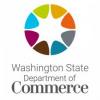Individuals who primarily Reside in a Rural Area
How the FCC misses the mark with bulk billing and digital discrimination
With the Federal Communications Commission's recent proposal to ban bulk billing arrangements in the multifamily industry, the National Multifamily Housing Council (NMHC) has been hard at work to ensure policymakers understand the full impact on the multifamily broadband industry.

Washington Public Works Board approves $21 million in broadband construction, pre-construction, and emergency grants and loans
The Washington State Public Works Board (PWB) recently approved $21 million in critical infrastructure projects in 10 communities for broadband construction, pre-construction, and emergency funding. Taking action at its May 3, 2024 business meeting, the PWB approved $20 million to expand broadband access in unserved communities, $550,000 for two pre-construction projects, and two emergency infrastructure projects for $514,500.
Congress, Call a Vote on the Affordable Connectivity Program Extension Act
Speaker Johnson, it is time to call a vote. In less than four weeks, over 23 million U.S.

FCC Updates Guidance Regarding Locations and Broadband Coverage for Enhanced Alternative Connect America Model Mechanism
The Federal Communications Commission's Wireline Competition Bureau (Bureau) updated guidance regarding location and broadband coverage in the Enhanced Alternative Connect America Model (Enhanced ACAM) mechanism. Specifically, to best reflect deployment as of the August 30, 2023 offer, the Bureau will use FCC Broadband Data Collection broadband availability data as of June 30, 2023 to determine deployment obligations and support for locations in the December 2023 Serviceable Location Fabric for which such availability data are available.

FCC Waives Enhanced A-CAM Rule to Facilitate Deployment in West Virginia
The Federal Communications Commission's Wireline Competition Bureau (Bureau) waives the FCC’s rules, on its own accord, to include in West Side Telephone Company’s (West Side’s) Enhanced Alternative Connect America Model (Enhanced A-CAM) offer locations that would otherwise have been treated as served by a competitor due to a federally enforceable commitment by ClearFiber. This limited waiver applies only to the locations within West Side’s West Virginia study area where ClearFiber is no longer subject to a
Millions of Americans are about to lose internet access, and Congress is to blame
The Affordable Connectivity Program is about to run out—and Congress is watching it happen. When the ACP was created in 2021 as part of the bipartisan Infrastructure Investment and Jobs Act, the $14.2 billion Congress allocated was expected to last five years. But demand for the benefit was so high that in January the Federal Communications Commission announced the program would be winding down at the end of April, after just three years.

Spectrum Launches Gigabit Broadband, Mobile, TV and Voice Services in Rural Lincoln County, Missouri
Spectrum announced the launch of Spectrum Internet, Mobile, TV and Voice services to more than 1,300 homes and small businesses near the communities of Famous, Moscow Mills, New Hope and Troy, Missouri.

Stronger Together
The Department of Commerce's Economic Development Administration (EDA) and the Department of Agriculture's Rural Development (USDA RD) offer this joint planning resource guide, designed to help you eliminate barriers and encourage collaboration among your stakeholders. The guide is separated into four key focus areas including infrastructure and high-speed internet expansion.
As ACP Funding Dwindles, What is the Future of Broadband Affordability?
Without congressional action, funding for the Federal Communications Commission's Affordable Connectivity Program (ACP) will expire at the end of May 2024. With this in mind, the Senate Commerce Subcommittee on Communications, Media and Broadband convened a May 2 hearing on 'The Future of Broadband Affordability' to discuss congressional funding of U.S.
Congress’s Free Netflix Plan
Some 23 million households receive broadband subsidies through the Affordable Connectivity Program, which is more than the number on food stamps. Households qualify if they earn 200% or less than the poverty line or participate in other welfare programs such as Medicaid. This includes relatively affluent households with public-school students in localities like New York City that provide universal free school meals. Broadband providers have said in recent earnings calls that they don’t expect to lose many subscribers once the program ends.

